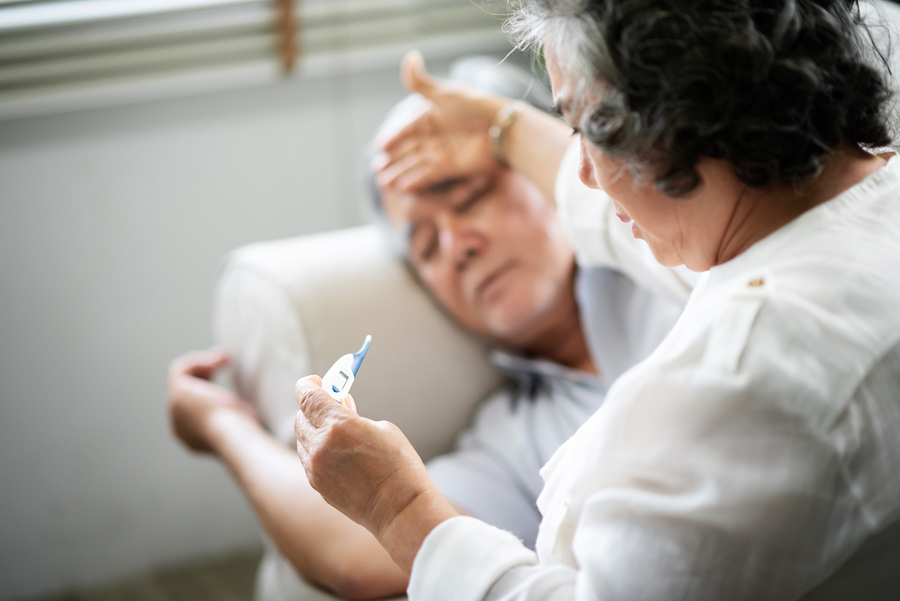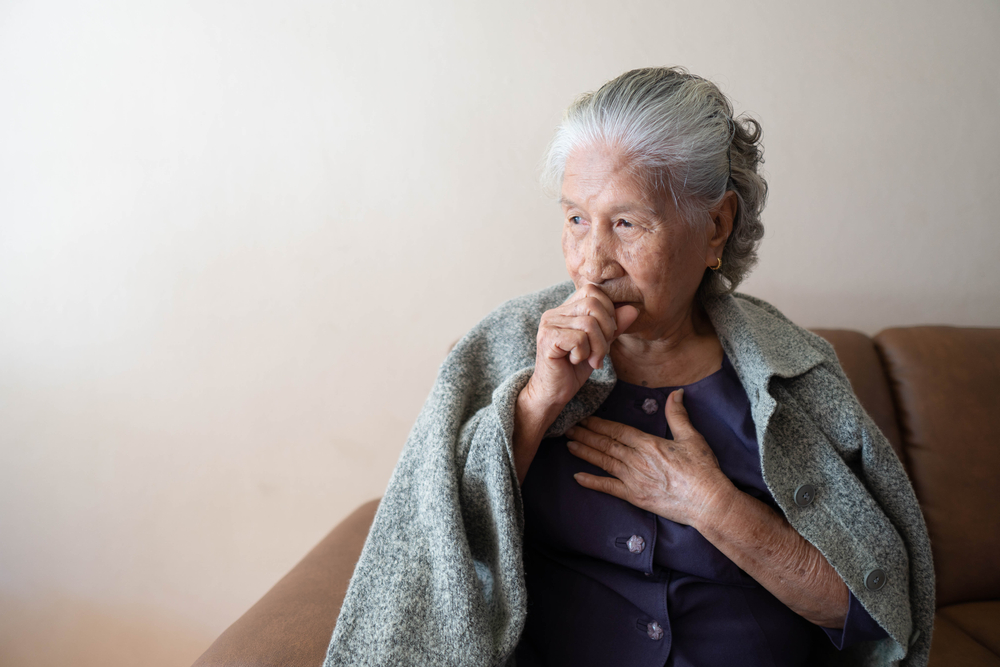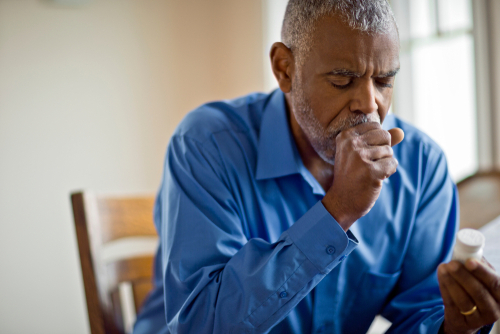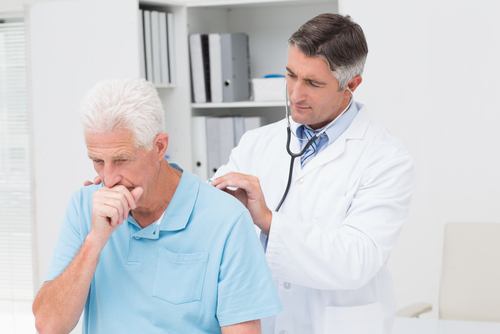Pneumonia Symptoms In Elderly Adults
Category:

Pneumonia inflames the air sacs in one or both lungs, which may fill with pus or fluid. This can cause a variety of symptoms, including fever, cough, chills, difficulty breathing, and many others. Pneumonia may be mild for certain populations, but it can be deadly for adults older than 65. Seniors are at a greater risk of contracting pneumonia due to other underlying health issues that come with age.
What are the symptoms of pneumonia in the elderly?
Typical pneumonia symptoms, such as a phlegm-filled cough, chills, and high fever, sometimes do not appear in adults older than 65. This makes identifying pneumonia symptoms in elderly individuals difficult. However, there are other early signs of pneumonia in elderly adults to be aware of, including:
- Confusion
- Delirium
- Lower-than-average body temperature
Additional early symptoms of pneumonia in elderly adults include signs that can be confused with the flu or common cold. These include:
- Chest pain when coughing or breathing
- Shortness of breath
- Fatigue or feeling weak
- Diarrhea
- Vomiting or nausea
- Fever
- Chills
- Blue fingernails or lips due to drop in blood oxygen level
What are the risk factors that may cause pneumonia in seniors?
In addition to the serious pneumonia symptoms in the elderly outlined above, there are numerous risk factors that older adults need to keep in mind. These factors include:
- Heart disease
- Weakened immune system
- Infectious environments
- Issues with coughing (inability to cough strong enough to clear the airway)
- Other common issues that affect the lungs in seniors
How do you treat pneumonia in older adults?
No pneumonia prevention technique is 100% effective. When an older adult contracts pneumonia, it is important to receive the proper treatment. Dr. William Schaffner, medical director of the National Foundation on Infectious Disease, noted the best way to identify and treat pneumonia and the elderly symptoms. “Milder cases of pneumonia can be cared for at home, but more severe cases, especially in patients with other underlying health conditions, may require hospitalization.”
Contact your doctor if you suspect you may be dealing with pneumonia. Your doctor will usually prescribe antibiotics for bacterial pneumonia or antiviral medications for viral pneumonia. Here are a few additional ways your doctor may recommend treating mild cases of pneumonia:
- Cough medicine
- Pain relievers
- Fever reducers
- Rest
- Staying hydrated to help loosen phlegm in lungs
Pneumonia is a leading cause of hospitalization in older adults. The mortality rate is high, particularly in the elderly. Be on the lookout for signs and symptoms to get treatment as early as possible.
Subscribe
Date: 2019-03-28
Category:


